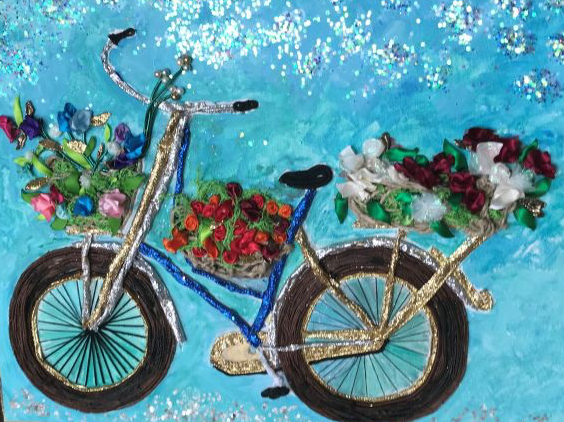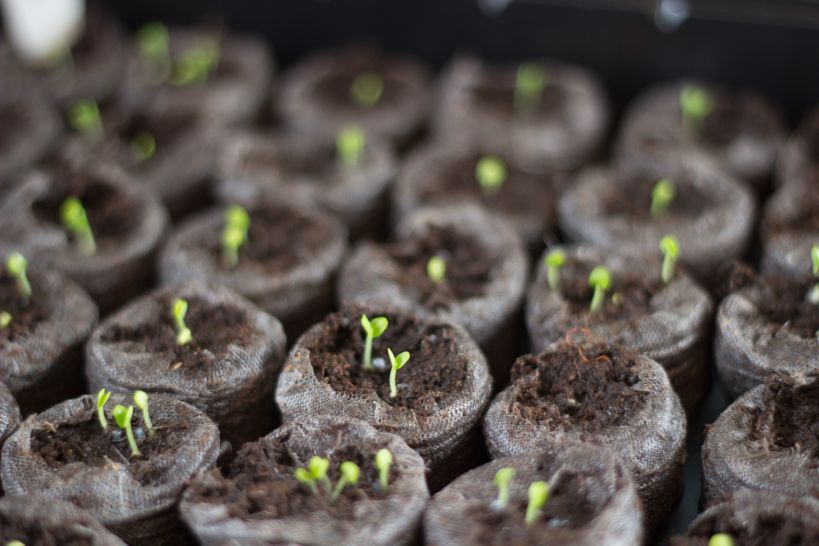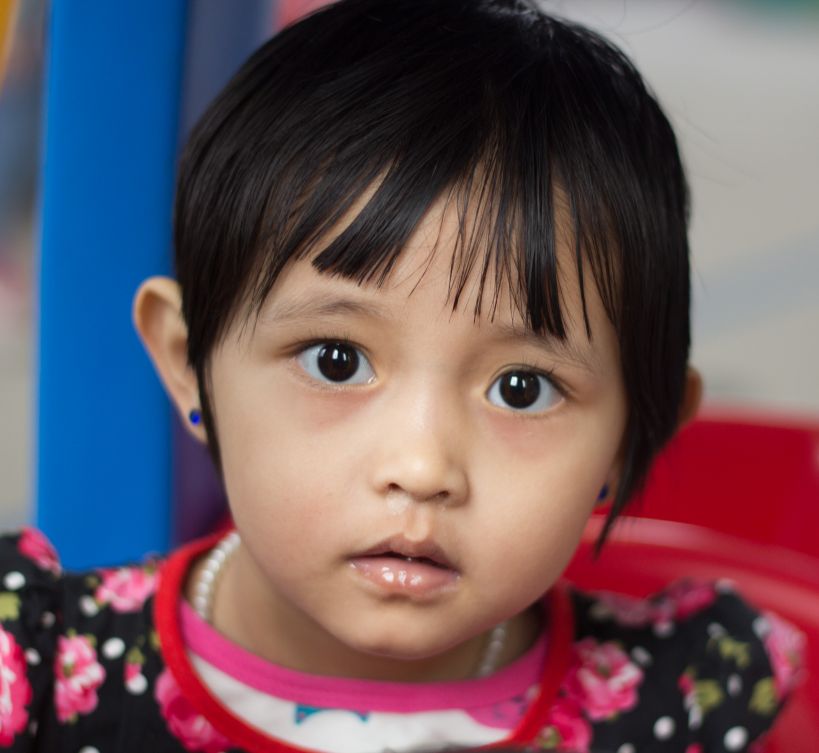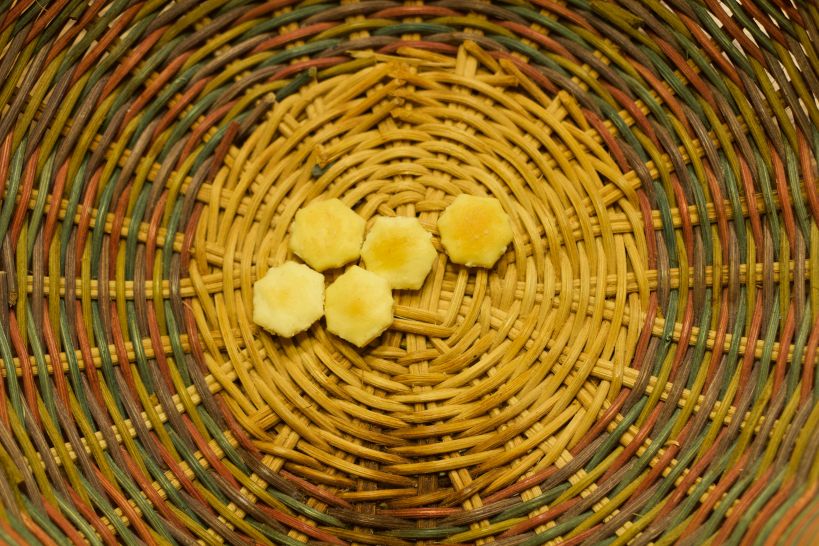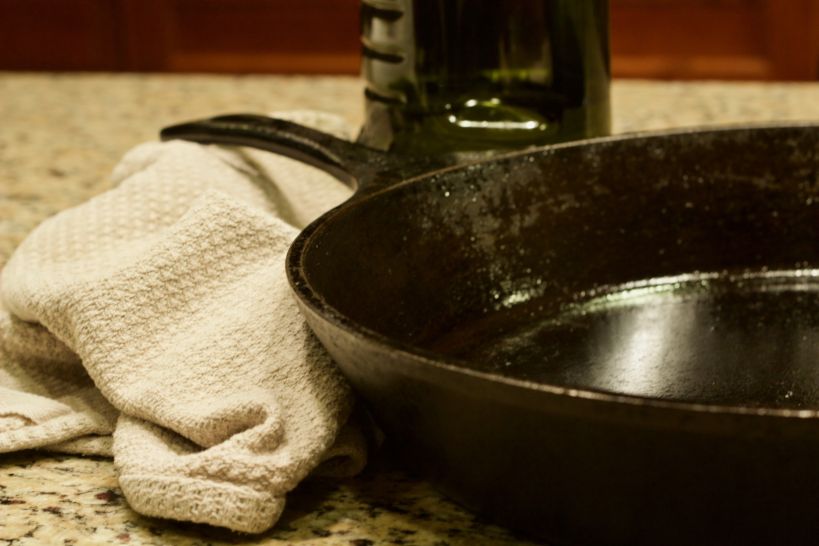Rebecca reaches chubby fists to grasp Fischer-Price Rock-a-Stack rings. Serena pastes daisy stickers and brown paper dolls on pink paper. And Hlu Ling skips around a low table dotted with numbered hearts, covering each with a matching pink one.
Here, they are safe.
Yet each belongs to a family who fled a place of danger.
I wonder at the stories their refugee parents will tell them. True stories of countries far away, of loved ones left behind, of colors and smells and flavors muted in America. Stories that might be hard to carry.
But today, these three are innocent of those stories. And they are happy. Happy to be in classrooms with teachers who love and care for them while their parents learn English down the hall.
I’m visiting their classrooms, chatting with three of these teachers. Oksana is a refugee, Wade is an American, and Erin is an American married to a refugee.
Oksana sits on a brightly colored rug, snuggling two babies. Rebecca—brown eyes wide—eyes me and my camera from the safety of Oksana’s lap, having now traded the rings for a teething ball.
Why this job, I ask? “Because we were refugees, too,” Oksana says. Fleeing religious persecution in Russia, she arrived here at the age of nineteen with her Christian parents and most of her eleven siblings. She started working for World Relief when her oldest boy was a year old, and she has done so now for over ten years.
Oksana quietly shares that she needed to take a break when her husband became ill and subsequently died. The text she received that invited her back was an incredible answer to prayer for a job she loves with a schedule flexible enough to parent her three school-aged boys.
You wouldn’t know from her warm smile that she’s experienced such grief. Maybe that’s why she’s so good with babies that arrive for the first time and are handed over the nursery counter by trembling parents, themselves overwhelmed with everything new.
Oksana is gifted with children. “All children,” she says, “understand the language of love.” She wants these babies and their parents to know that people care about them—“that they can be comfortable in this country.” She gains their trust quickly, and I can see why.
What is her message to Americans about refugees? “That we have to care about each other,” she says. “Jesus wants us to be a good example with more than our words. Show love. We are the same—all God’s creation.”
“It’s nice when somebody cares about you,” she reflects. She knows.
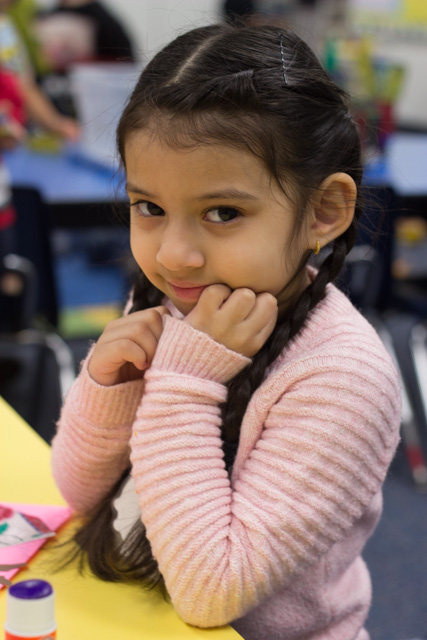
I say good-bye and move to a classroom of 3-5 year olds. I sit down in a tiny chair next to Wade—a lawyer with a flexible schedule who volunteers two mornings a week. He is helping Serena paste.
Wade tells how a presentation from World Relief at his church—plus the stirring of God in his heart—triggered his desire to serve. He loves to sit with the children and play, read, or teach them new things. Last week he brought in his trumpet and let them press the keys, to their immense joy!
What skills does Wade bring to this role (besides owning a trumpet)? Patience, understanding the impulsivity of a preschooler, and being quick to praise.
We follow a trail of children upstairs to the gym where Wade leads them in Simon Says before releasing them to race around in tiny trikes. Sunlight shines through the large windows and they laugh out loud at the freedom to run.
What has Wade seen in these children? “Resiliency. You wouldn’t know all they or their families have experienced for all the joy they express.”
“Refugees have the grit necessary to be a contribution to our society. They are driven to succeed regardless of their education and nationality. They are a benefit to us all.”
Wade’s reason to serve? He loves watching them develop and having fun with them while modeling his own faith in Jesus with both words and actions. “It’s good to give back. And I get more out of it than they do.”
My last visit is with Erin, in the young 2’s and 3’s class. Erin—a pharmacist and mother of three— brings her youngest, Simon, with her two days a week while she volunteers in his classroom.
Erin echoes some of what Wade and Oksana say. She, too, volunteers because it’s a good way to give back by doing something she really enjoys.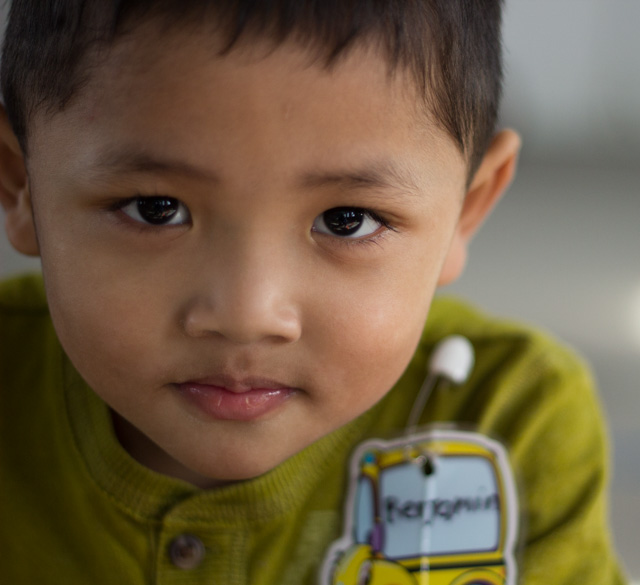
I ask her to describe one special child. Erin smiles as she points out Eh Nay, a happy boy in a black sweatsuit dancing around the gym. She describes him as sweet and responsive—a mother’s dream. Eh Nay learns quickly, is eager to help the teachers and his fellow classmates, and exhibits a warm and tender spirit.
Erin’s story is unique in that she is American-born and married to a refugee. She comments that her husband wouldn’t be here without the work of World Relief and the support of the church, school, and community throughout his childhood.
“I want these children to know that someone here loves and cares and wants them to succeed—that I wish the best for them,” she says. It is that same support that helped propel her husband from a Sudanese refugee camp all the way to Harvard. His name is Selamawi Asgedom, and he writes of his incredible journey in the book Of Beetles and Angels.
What does Erin want the rest of us to know about volunteering with World Relief? “There is such a need. The needs can be so overwhelming, but if you just do something little like this, you can change the lives of a handful of kids.” And it is enough.
What Oksana, Wade, and Erin do matters. It matters to Rebecca, to Serena, to Hlu Ling, to Eh Nay, and all the other children loved in these classrooms.
It matters to us. In serving the most vulnerable, these three demonstrate what is valuable.
I think back to Hlu Ling’s pink foam hearts, carefully paired one-to-one with those on the table. I imagine each of us caring for one refugee, pairing our hearts with theirs.
We could welcome them all to safety if we did.
Hope and Be.Longing
Matthew 19:14, “…but Jesus said, “Let the little children come to me and do not hinder them, for to such belongs the kingdom of heaven.”

